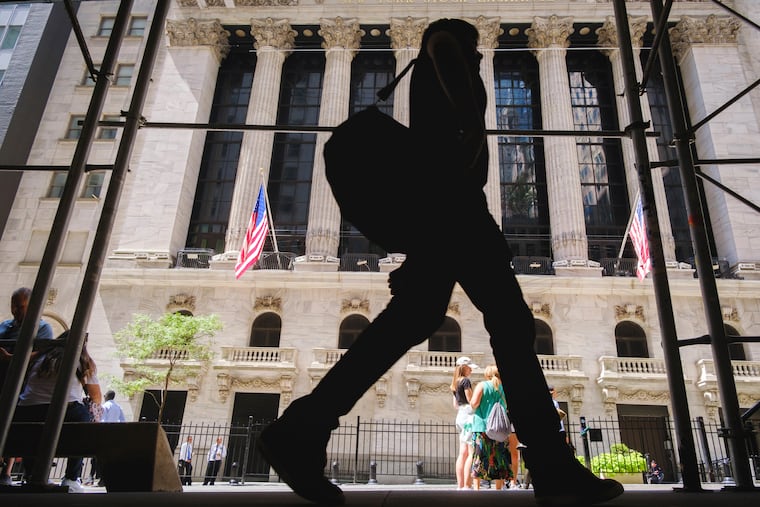Stocks end higher on Wall Street after more choppy trading
Stocks ended modestly higher on Wall Street after another day of choppy trading.

Another day of choppy trading on Wall Street ended with modest gains for stocks Thursday and the benchmark S&P 500 barely back into the green for the week.
The S&P 500 rose 0.2% after shifting between small gains and losses for much of the day. It’s now up 0.1% for the week.
The Dow Jones Industrial Average managed a 0.1% gain, while the Nasdaq rose 0.2% as technology companies gained ground.
Smaller company stocks outpaced the broader market, sending the Russell 2000 index 0.7% higher.
» READ MORE: Higher energy taxes in the Inflation Reduction Act will increase inflation, not decrease it
The choppy trading for stocks follows a four-week winning streak for the S&P 500. Investors remain concerned about stubbornly hot inflation and its impact on consumers and businesses. Financial results from big retailers and economic updates throughout the week have shown that the economy remains under pressure from inflation, but has several pockets of resiliency.
“The market is looking for direction and it seems people are caught between the idea of slowing economic growth and slowing inflation,” said Chris Zaccarelli, chief investment officer at Independent Advisor Alliance.
The S&P 500 rose 9.70 points to 4,283.74, while the Dow added 18.72 points to 33,999.04. The Nasdaq gained 27.22 points to 12,965.34, and the Russell 2000 added 13.41 points to 2,000.73.
Technology companies had some of the strongest gains. Cisco Systems rose 5.8% after reporting solid financial results.
Energy stocks also climbed as U.S. crude oil prices rose 2.7%. Devon Energy rose 5.9%.
Department store Kohl’s fell 7.7% after issuing a disappointing financial forecast.
Bond yields fell. The yield on the 10-year Treasury, which affects mortgage rates, slipped to 2.87% from 2.90% late Wednesday.
Bed Bath & Beyond fell 19.6% after investor Ryan Cohen proposed selling his entire stake in the struggling retailer.
Slightly fewer Americans filed for unemployment benefits last week, according to the Labor Department, as the labor market continues to stand out as one of the strongest segments of the U.S. economy. The solid update on the employment market follows an encouraging report on Wednesday that showed retail sales remain solid despite the hottest inflation in four decades.
Investors have been closely watching the Federal Reserve for any reaction to shifts in inflation or the economy. The central bank has been raising interest rates in an effort to slow the economy and cool inflation, but Wall Street is concerned it could slam the brakes too hard and veer into a recession instead.
Any sign that inflation is peaking or cooling has given Wall Street hope that the Fed could consider easing up on rate hikes. It raised its benchmark interest rate by three-quarters of a point for a second-straight time during its meeting in July and is expected to raise the rate by a half-percentage point at its upcoming meeting.
The minutes from last month’s meeting of Federal Reserve policymakers showed that policymakers expected the economy to expand in the second half of 2022, though many suggested that growth would weaken as higher rates take hold. The Fed intends to continue raising rates enough to slow the economy.
Wall Street continues monitoring potential trade issues between the U.S. and China after the U.S. government said it will hold trade talks with Taiwan in a sign of support for the island democracy that China claims as its own territory, prompting Beijing to warn that it will take action if necessary to “safeguard its sovereignty.”